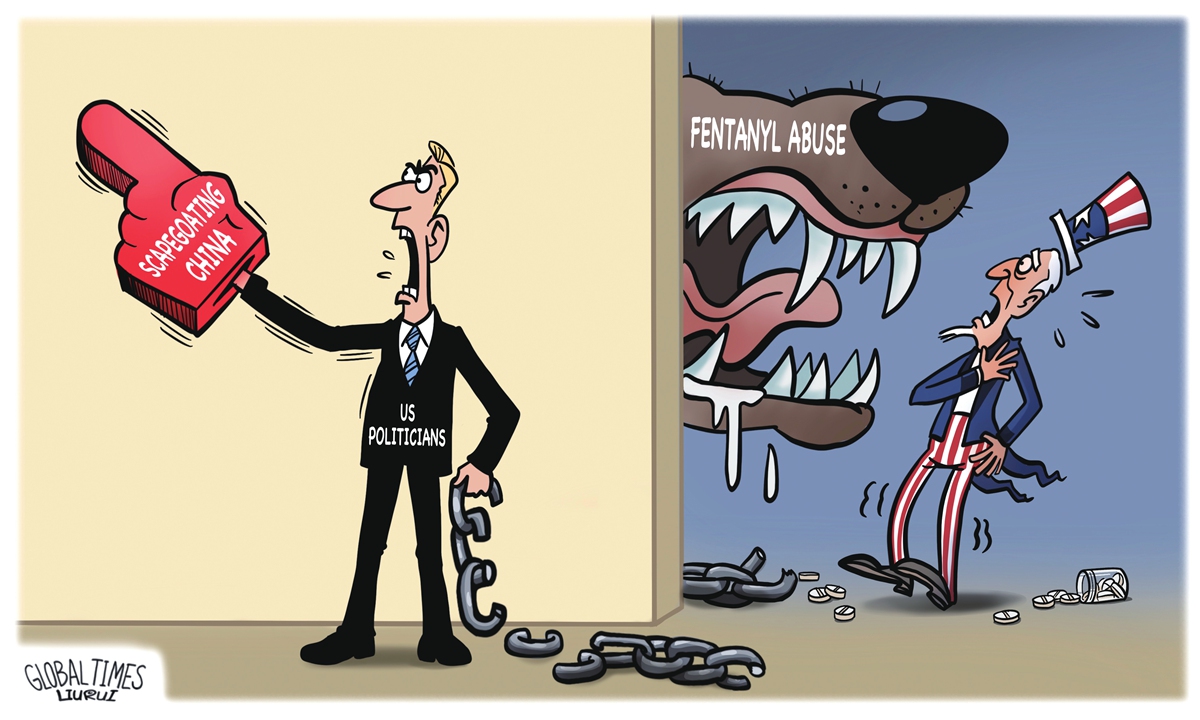“Buck-passing” drama needs a script, a stage and actors. When all is ready, the drama is on. According to Politico, in an NBC program aired on Sunday, US senators called for “more forceful efforts” to slow China’s role in producing the deadly synthetic version of fentanyl.
Senator J.D. Vance (R-Ohio) said, “We should be willing to say [to China], ‘If you don’t stop sending fentanyl precursors to Mexico and to our own ports of entry, we’re going to really penalize you guys economically.’ That is the real tool,” adding that “we can increase tariffs and extract a massive economic cost. I think the Biden administration should be doing exactly that.”
Meanwhile, Senator Sherrod Brown, Vance’s Democratic counterpart in Ohio, echoed his view, “I think it’s important that, you know, that we hit them … We’ve got to go after all sources that are financing this and that are laundering these drugs.”
J.D. Vance should know more about the dangers of drug abuse in the US and the reasons behind its prevalence than other US senators and ordinary Americans. In his book Hillbilly Elegy: A Memoir of a Family and Culture in Crisis, published in 2016, he described his journey from a troubled, addiction-torn Appalachian family to Yale Law School. His mother was addicted to various drugs for many years. The area of Ohio where his family lived in and the area of Kentucky where his mother and grandfather came from ended up having a lot of drug problems – drugs including heroin and opioids. In an interview with NPR in 2016, he said in the Ohio county where he grew up, Butler County, deaths from drug overdoses actually outnumber deaths from natural causes.
The US has never been able to solve its drug problem. The US drug epidemic’s root cause lies within the country itself. In 2021, over 106,000 people in the US died from opioid overdoses, reaching the highest level ever recorded and surpassing the combined number of deaths from firearms and car accidents. Among them, nearly two-thirds were linked to synthetic opioids such as fentanyl. The opioid epidemic in the US is mainly due to the long-term and widespread abuse of prescription painkillers. The US government continues to push for the legalization of marijuana, playing a role in condoning and exacerbating the problem.
Wei Zongyou, a professor at the Center for American Studies, Fudan University, believes the loose drug policy in the US, including the legalization of marijuana consumption and cultivation in states like California, has provided great convenience for drug addicts, and opposing drug abuse has even become politically incorrect in the US.
Nevertheless, politicians in Washington are still eager to find others around the world to blame for their own failures, especially targeting China and making it a “scapegoat” for the US’ drug problems. This is a typical case of “being sick oneself and making others take the medicine.” The US has the most serious drug problem in the world, yet it slanders China, the most stringent in combating drugs globally.
China maintains a firm stance of “zero tolerance” toward illicit drugs and has consistently demonstrated its strong commitment to adhering to the three UN drug control conventions. For example, in a groundbreaking move in 2019, China became the first nation to subject all fentanyl-related substances to monitoring and inspection. Furthermore, the country introduced testing standards for fentanyl and synthetic cannabinoid drugs in October 2021 to enhance its already rigorous control measures over addictive substances.
Xu Liang, an associate professor at the School of International Relations of Beijing International Studies University, told the Global Times that calling to catch a thief is quite common for the US as a thief itself. Passing the buck to China for its failure to handle the COVID-19 pandemic and criticizing China for engaging in “bullying and coercion” and “cyber hegemony” are some examples. The buck that US politicians desperately try to pass to others actually contains the dirty water of their own ineffective governance.
The US needs China’s cooperation in combating drugs. China has strict laws and policies in place to combat illicit drugs, which are widely recognized by the international community. However, fundamentally, it is the responsibility of the US government to take strict measures to tackle drug abuse in the US. Seeking external reasons to heal internal woes will not help the US get rid of its drug addiction, but will only turn the US into a global “drug den.”














